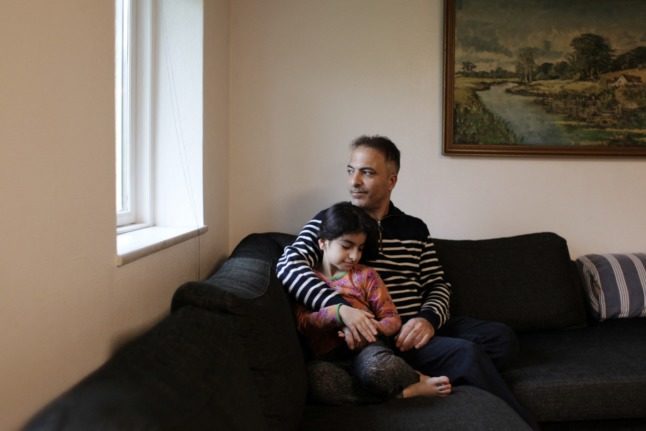SYRIA
Denmark prepared to get tougher on jihadists
Government coalition parties are in agreement that individuals suspected of aspiring to fight abroad should have their passports confiscated or their resident permits rescinded, but they're not yet sure how to do it.
Published: 12 September 2014 09:32 CEST
Updated: 12 September 2014 12:50 CEST
Updated: 12 September 2014 12:50 CEST

Kurdish Peshmerga fighters hold a position during fighting against Isis militants in Rashad on September 11th, 2014. Photo: JM Lopez/Scanpix
The Danish government now appears ready to take a tougher stance against Danish citizens who travel abroad to participate in the fighting in Syria and Iraq.
The newly-appointed interior minister and new leader of the Social Liberals (Radikale), Morten Østergaard, said on Thursday that Denmark should confiscate the passport of anyone suspected of being an aspiring jihadist.
“This nuisance must be stopped by all means. If that includes Denmark following the lead of other countries and taking passports from people, then we’ll do that. It must be stopped and punished,” Østergaard told BT.
The government is also prepared to rescind the resident permits of any non-citizens who engage in foreign fighting. Part of a coming proposal from the Justice Ministry calls for "residency consequences for foreigners living in Denmark if the person in question travels to participate in an armed conflict" according to DR, which has seen the coming proposal.
"We are saying to foreigners who live in Denmark and are contemplating traveling to Syria, for example, and joining up with Isis: 'Now you are getting a warning and we naturally hope that it can help you reconsider'," the justice minister, Karen Hækkerup of the Social Democrats, told DR.
Among the countries that have proposed similar actions are Norway and France, and there are calls to do the same in Austria. Denmark first signalled a willingness to crack down on jihadists in early July.
While both government coalition parties agree with the idea of punishing foreign fighters, they seem unsure of how to implement it. Social Democrats spokeswoman Trine Bramsen said the government would reveal further details when it releases a new comprehensive anti-jihadist package, while Østergaard told DR that the parties would have to figure out the legal framework for confiscating passports.
“My position is that if someone is on their way down to help the Islamic State with their brutality, it should be stopped. We are obligated to stop Danish citizens from going to Syria and committing serious offences. There is no doubt that no Danes should be going to Syria,” he said.
Bramsen admitted that merely taking the passports of suspected jihadists won’t solve the problem.
“It can’t stand alone and we know that what works best is prevention. But clearly, if it can be a hindrance to just one person who is looking to fight abroad, then it is something that we are very willing to do as part of a strategy that we will launch within a few weeks,” she told Politiken.
The Danish People’s Party, which has previously called for the government to take action against jihadists, gave the government faint praise.
“It is good, but it is still too weak and it is too late. And it is also a bit embarrassing to see how everyone is suddenly very busy talking about immigration policies and Syrian warriors because an election is getting closer,” party spokesperson Martin Henriksen told Jyllands-Posten.
Opposition party Venstre, meanwhile, is suggesting that any Danish citizen who travels to Syria or northern Iraq without special permission from the Justice Ministry should face the automatic loss of their citizenship and up to six years in prison.
"We need to put an end to people coming back to this country after being radicalised and putting our national security in jeopardy. They should know that you can't just go down to Syria, engage in terror and then come home again," Venstre spokesman Martin Geersten told Berlingske.
At least 100 Danes have joined the fighting in Syria and according to The Economist, Denmark has the second highest proportion of jihadists, behind only Belgium.
Url copied to clipboard!


 Please whitelist us to continue reading.
Please whitelist us to continue reading.
Member comments